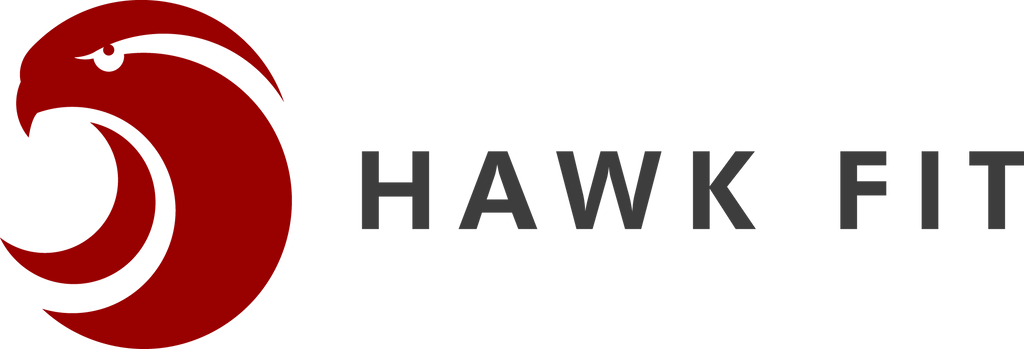Ramadan Mubarak!
Fasting from both food and fluid all day, every day, for an entire month, puts the body under stress and for many Muslims, that’s the point.
The Holy month of Ramadan is for spiritual reflection and devotion, self-discipline, and charity — not for doing what feels good or comes easy. It’s meant to be challenging and it’s almost certainly going to impact your workouts!
“But it’s basically intermittent fasting, isn’t it?”
Not quite.
Clearly you’re fasting intermittently, but capital I.F. (intermittent fasting) is an approach that has become popular in recent years as a means for, among other things, controlling caloric intake and improving dietary adherence. In fitness culture, it usually means restricting your feeding windows to a few hours per day, or fasting for 24 hours once or twice a week- but there are a few important differences between how Intermittent Fasting is employed and the way it’s traditionally approached during Ramadan.
Training fasted is not always as awesome as it’s seems to be, especially because most people who talk about it on the internet aren’t doing a liquid fast. They’re maintaining hydration status, or they’re sipping on BCAAs (which doesn’t make sense because BCAA’s yield calories, different conversation for another time), or they drink coffee beforehand, etc.. And often they’re just fasting during hours of sleep, extending their morning fast by a few hours. Whereas during the Holy month of Ramadan you’re literally fasting from food and water from sunrise to sunset- this can range from a 12 hour, to 18 hour fast depending on where you are in the world.
TRUE fasted training, after hours of no fluid intake, performed every day — often during some of the hottest months of the year? There are several studies showing that athletic performance is likely to take a hit (1) (2).
Even modest levels of dehydration can impair performance. The general rule of thumb is that even 2% dehydration can impair athletic performance. As the old saying goes, you can’t make a man drink, but there are some simple strategies to ensure you aren’t dehydrated. Many of us tend to gravitate towards nutrition/training and advanced strategies that will potentially improve our performance, but overlook one of the simplest variables which is hydration! A study by Kraft et al. placed 10 males through a full body resistance training session in two groups hydrated vs dehydrated. The dehydrated group exhibited decrease perceived level of effort, and elevated heart rate- let’s stop there because just these two variables alone are significant enough to impact strength, performance and total training volume (3).
It would be rather difficult to follow through with your game plan if you’re in a calorie surplus, or gaining phase during the Holy month of Ramadan due to the demand of trying to fit in an excessive amount of calories in such a short feeding window- less than ideal for your digestive system as well.
Generally what I recommend for most people is to either bring your calories down to your theoretical maintenance range, or opt for a short fat loss phase. If that’s the route you intend to take, the most important variable we have to consider is lean body mass preservation— saving your gains! That being said, staying on top of and prioritizing your calorie and protein intake is increasingly important. If you weren’t already tracking your calories/macronutrients, maybe this is a prefect opportunity for you to better develop your understanding of nutrition.
Training is also another BIG variable we have to take into account if we want to be in an ideal position for muscle retention! We already covered the importance of hydration and how it can impact training- it’s something that CAN’T be overlooked, especially before you train. Ensuring you’re properly hydrated is extremely important to minimize risk of injury and ultimately have an awesome training session.
In a perfect world, you would train an hour or two after consuming plenty of fluid and a small meal of protein, carbs, with a small amount of fats (to minimize the time it takes to fully digest your meal). During the month of Ramadan, that leaves a window either after a small ‘Iftar’ (the “breaking of fast” consumed at sunset) or, early in the morning after ‘Suhoor’ (the pre-dawn meal, which I don’t recommend) to train. Key word, in the perfect world.
Making time to work out after Suhoor could mean losing out on precious sleep which can impact recovery and while training after a small Iftar is probably the most, practical, ideal and doable for most people, but many people would rather not sacrifice a lengthy, relaxing Iftar with their loved ones.
My recommendation is to train after a small ‘Iftar’ you would simply break your fast per usual, but you’d essentially be breaking your fast with your pre-workout meal. I recommend a low fiber, low fat based meal, a quick digesting carbohydrate (something like rice, potatoes, cereal, fruit, either banana, berries, dried fruit like raisins, or blueberries- brownie points for combining different type of carbohydrates [cereal + fruit] which can improve your ability to tolerate a larger quantity of carbohydrates in one meal), with lean protein (chicken, or beef), or protein powder (to stimulate/maximize muscle protein synthesis). By checking the box for these variables in your pre/post workout nutrition, you’ll be placing yourself in an ideal anabolic physiological environment to maximize performance and recovery.
Prior to your pre/post workout meals, you should proceed to have a nutrient dense meal with your family/loved ones. Most importantly, you need to be cognizant of your final meal before you sleep! This should be a slower digesting, whole food based meal, with a moderate amount of fat- this has the potential to improve satiety, and considering it’s a meal that has at least 30-40g of protein it can prolong muscle protein synthesis while you’re sleeping… which translates to saving your hard earned gains!
Any successful nutrition plan always has foundations:
⠀
These include:
- Controlling energy intake. When we consume less energy (i.e. calories) than we burn, we lose weight (and, ideally, most of that is body fat). Whether you take in less energy by eating frequent small meals or infrequent larger meals is up to you.
- Focusing on food quality. Fresh, unprocessed, nutrient-dense food is a must, regardless of which eating style you adopt.
- Regular exercise. Exercise is a critical part of the equation.
⠀
Once those three have been taken care of, it’s a matter of personal preference and lifestyle considerations.
Just in case you’re someone who’s worried about losing muscle during this period of time, don’t stress too much. You’ll be completely fine as long as you’re consuming a sufficient amount of calories/protein, and providing your muscles with some form of training stimuli, you’ll be a-okay! It takes a prolonged period of inactivity, or intentional ‘detraining’ to lose a noticeable amount of muscle. We see this in literature as well. Any muscle/strength lost is regained relatively quickly compared to how long it took initially to build it. Moreover, the training stimulus needed to maintain muscle mass is much less than what’s needed to build more. Try to be active daily, or every other day for energy expenditure and cardiovascular health.
The month of Ramadan is challenging for practicing Muslims, so if you know of someone who’s fasting during this period of time- do your best to be culturally aware and support them during this Holy month!

